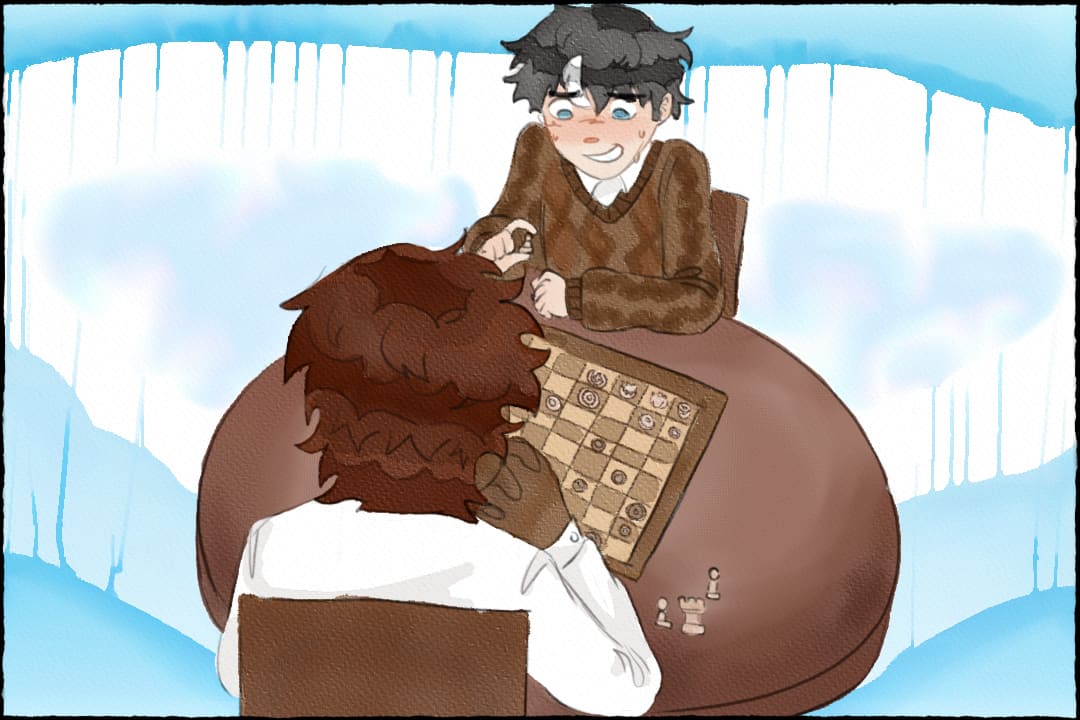On September 4, World Chess Champion Magnus Carlsen kicked off a firestorm of controversy when he withdrew from the Sinquefield Cup — an elite chess tournament with a $500,000 prize — after losing to 19-year-old Grandmaster Hans Neimann. The saga further unfolded as Carlsen proceeded to forfeit his next game against Neimann on September 19 after making just one move.
Carlsen’s move set the chess world ablaze, since chess masters don’t resign after one move — except, maybe, to send a message.
Carlsen made his intentions clear immediately afterward on Twitter. In a carefully-worded statement, Carlsen accused Neimann of cheating, alluding to Neimann’s confessions of cheating online at the ages of 12 and 16 years old. “I don’t want to play against people who have repeatedly cheated in the past,” Carlsen wrote, “I don’t know what they are capable of doing in the future.”
Speculation concerning Neimann’s cheating proliferated on Reddit but quickly spread to the rest of the internet. The most notable conspiracy theory, shared in a now-deleted tweet by Elon Musk, alleges that Neimann had cheated with vibrating anal beads that communicated moves to him. Since then, grandmasters from across the chess world have weighed in on the scandal, and Chess.com scrutinized Neimann’s past in a report reexamining his every move. While most professional commentators have refrained from speculating on the contents of Neimann’s anal canal, Gizmodo demonstrated how such a device might be plausible.
Chess.com has released a report describing evidence that seems to support the notion that “Hans likely cheated online much more than his public statements suggest.” However, no concrete evidence has been found that proves Neimann has cheated at an in-person tournament.
The increasingly bizarre allegations against Neimann are comical and give me an opportunity to reflect on my own experience playing competitive chess.
When I was a preteen, I was a tournament chess player, though I was never close to the talent and success of either Carlsen or Neimann. Like any space characterized by competitive tournaments, the chess world is cut-throat, and at the highest levels of competition, players are often haunted by their own inaccuracies.
I have never cheated, neither during a tournament nor in casual online games and I don’t know anyone who has. But in every tournament game I’ve played, I would have immensely benefited with even minimal outside assistance. All of my games, despite my years of studying, preparation, and practice, are so full of oversights and poor moves that they are inescapably ‘human.’
At the heart of the controversy is more than Neimann’s personal fate, but the culture of competition in the chess world at large.
Carlsen’s resignation means more than just the fact that he thinks Neimann is a cheater — it implies an outright refusal to play against Neimann in the future, and, as a consequence, event organizers cannot invite both players to the same tournament. Given that Neimann intends to make a career out of his prodigy at the top of the chess world, the implications are unavoidable for him.
From Neimann’s perspective, Carlsen has leveraged his stardom and accomplishment to bear down on a defiant rising challenger.
Was Neimann cheating in this particular instance? I don’t know. But regardless, the idea that an established figure can exert their fame and influence to potentially blacklist a 19-year-old rival is troubling. Recently, Neimann filed a $100 million defamation lawsuit against Carlsen and Chess.com. He stated in the lawsuit that he was finding difficulty securing “employment as a chess teacher at a reputable school.”
The lesson the chess world needs to take away is not just about the importance of competitive integrity, but also celebrity culture and how we treat public figures. Though a world champion, Carlsen should not have this level of influence, and Neimann should not lose his career over childhood mistakes that were acknowledged and apologized for.
I don’t mean to say that public figures shouldn’t be held accountable, I simply mean we shouldn’t expect infallibility from celebrities. Other public figures such as elected politicians tasked with serving the public good are a separate matter — they are our representatives. But when appropriate, we should extend the benefit of the doubt to the personal lives of musicians, academics, and athletes.
The chess world lays bare the kind of pressure and scrutiny exerted by celebrity culture. It isn’t always healthy for children — and Neimann was a child when he was known to have cheated. A culture of suspicion, distrust, and surveillance isn’t good for any sport.
I fell in love with chess as a child without fear that my opponents were cheating, but also without distrustfully wondering how they might have cheated in the past. I saw my competitors as potential friends to learn from, not as enemies to be conquered.
The anal bead memes highlight the absurdity of all this. The chess world doesn’t need the kind of over-scrutinizing atmosphere that leads to routine searches of anal canals. By expecting the best while assuming the worst from everyone, we risk losing something special about the sports we love.
Tony Xun is a fourth-year student at New College studying political science, international relations, and history.


